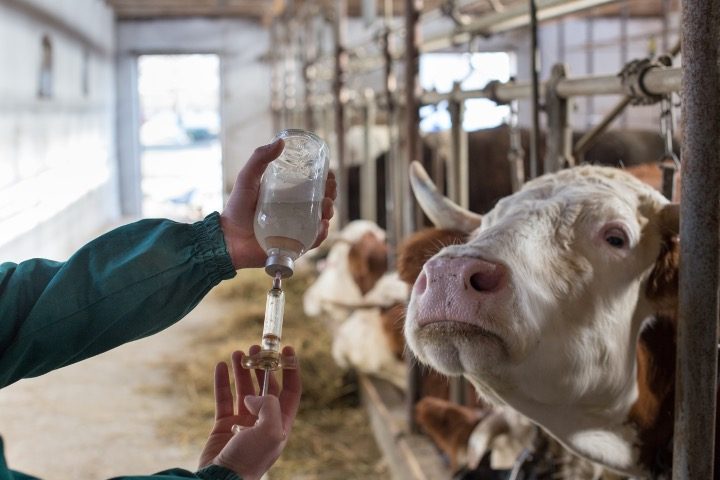
In a recent interview, Dr. Brooke Miller, president of the United States Cattlemen’s Association, sat down with Dr. Robert Malone, a prominent figure in mRNA technology research and development, to discuss the potential implications of using modified mRNA vaccines in livestock.
The initial article in which Dr. Malone and his wife, Dr. Jill Glasspool Malone, addressed the issues, was published on Substack in January this year and sparked considerable interest and concern in the agricultural community. The article was discussed in an in-depth interview with The New American.
During the conversation with Miller, Dr. Malone expressed reservations about the rapid deployment of modified mRNA technology in livestock, particularly in the cattle industry. He highlighted several concerns, including the potential health risks to animals and humans, as well as the economic implications for the industry.
He pointed out that while such technology has been fast-tracked in swine and is being considered for poultry, its viability and safety in cattle remain highly questionable. The concern is especially pressing since the discovery of dangerous DNA fragments in mRNA-based Covid vaccines for humans. Malone said,
What is the safety profile for your animals? We don’t really know. We can extrapolate from humans, but there’s been a new development that really, I think, does raise some serious concerns both for the bulls and the cows, but particularly for the cows. And that is that all of these products are contaminated with small fragments of DNA [that are] going to get into the cells of your animals the same as the RNA is.
Dr. Malone further delved into technical aspects, discussing how modified viral RNA, encased in lipid nanoparticles, can potentially affect every cell in an animal’s body and cause an array of medical conditions. One of them is autoimmune diseases. “As the RNA goes into your animal’s cells, it produces a [foreign] protein…. And so, your animal’s immune system is going to attack all those cells,” explained the doctor.
This technology puts the reproductive systems of cattle at risk, too, since modified RNA is known to travel to the ovaries, which can affect both cows and their offspring,
We have had numerous examples in the human case that are now firmly established that this product, this technology, can negatively impact fertility. And in particular, menstruation is well established, so that would be cycling in your cows, but it may also impact the ova, the eggs that are being produced from the ovaries, so that [could potentially] have impacts on your calves.
Another potential implication of modified mRNA vaccines contaminated with DNA fragments is cancer. As explained by Malone,
In the case of these small DNA fragments, they can directly impact the integrity, let’s say, chromosomal integrity, or the technical term is genotoxicity. And that’s a reasonable concern both in terms of your livestock and things like bone marrow stem cells and splenic cells, these cell types that reproduce a whole lot, have stem cells, and are prone to various cancers.
Dr. Miller echoed these concerns, stressing the importance of weighing the benefits against the risks and public perception. He noted significant consumer apprehension surrounding this technology, which could negatively impact the market and exports.
The interview also touched upon the legislative and regulatory aspects, with both Drs. Malone and Miller expressing skepticism about the independence of agencies such as the USDA from large agricultural interests. They emphasized the need for transparent, conflict-free verification of any new technology before its adoption in the livestock industry.
In conclusion, Dr. Malone strongly advised the cattle industry to resist the pressure to adopt mRNA technology without thorough testing and understanding of its implications. He and Miller agreed that the industry’s current vaccination protocols are sufficient and that introducing mRNA technology poses unnecessary risks.





